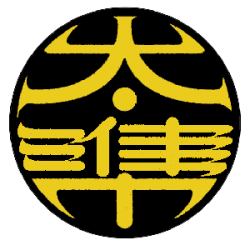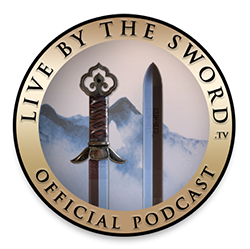To Lead or Not to Lead
To Lead or Not to Lead
by
Grandmaster Taejoon Lee

There are many attributes which define a good leader and among the very top is assertiveness. The ability to take action without having to be told to do so. However, this can lead to great misfortune and much suffering. Before one can make the proper choices to take action and be assertive, they must first possess ownership with the understanding of the consequences. When they make the wrong choices and act upon them without having incurred any of the negative consequences, suffering for them, then they will continue to make decisions carelessly which will make all of their choices frivolous, bringing harm not only to the induvial but more so to others who choose to follow them
Many people in position of authority attempt to motivate and teach assertiveness by telling their child, student, and/or employee to just try everything without worrying about the consequences of failing or quitting in the hope that they will learn to be unafraid to take action and be assertive. However, the reality is that by trying many things they will also be faced with many obstacles, failures, and disappointments, which can have the opposite result of reluctance and apathy. Knowing this, if one chooses to protect them from the negative experiences where they do not incur any pain and suffering from the negative consequences of their ill actions, then all you are doing is setting them up for a greater fall when they are out of your domain and enter the real world.
Furthermore, If the option to give up or quit is readily available without consequences then the individual will surely take it as it is our human nature to seek the easier, less resistant path, resulting in them only learning how to quit. As they continue to abandon, quit, or give up whenever things become too difficult, although they are being praised for their efforts by their care giver and do not endure any immediate negative repercussions, they will inevitably begin to doubt and question their self-worth as the realization that they seem to fail, incapable of finishing at anything they start begin to set in. Therefore, the original attempt to encourage and motivate the person to be unafraid of taking action and be assertive by telling them to try everything and don’t worry about failing or losing, has the inverse effect of self-doubt and low self-worth.
This would be the normal or rational result, however most often our internal mechanism of self-preservation and survival twist and turn the negative outcomes to blame and externalize the problem, rejecting the idea that the “self”, the individual is at fault, leading to self-entitlement and in severe cases psychosis of self-delusion and disconnect with reality. Praising and encouraging someone only for their efforts and not the outcome never allows the individual to experience the nature of responsibility and accountability which are the pillars of leadership. Hence, this is the greater more severe atrocity not only to the individual but more so to our society, our community, by producing incompetent self-entitled, self-centered, narcissistic leaders.
On the other hand, if we restrict and prevent our subordinates whom we oversee from attempting any task or action, in the fear of them failing or making mistakes which is inevitable as unexperienced novices that they are, ultimately ending up with you to clean up the mess, then we as their leaders or guardians have failed them as they can only learn by doing. Undoubtedly, this type of upbringing will create a fearful person reluctant to attempt or try anything new, always seeking to remain in their comfort zone.
Recently, I told one of our senior instructors to take charge and his reply was one of reluctance with such choice of words as “it’s difficult” and “it’s complicated”. Taking charge, leadership is always difficult and complicated; in fact, “life” whether you choose to do much or nothing at all is difficult and complicated and bad things happen to good people all the time. Thus, when I asked him to take charge, what I was asking him to do is to do more, suffer more, struggle more, and sacrifice more. So, in truth he was right, I was asking him to face more difficulties and solve greater complications. Why would any reasonable person accept such an offer? No, a reasonable, rational, common person would never accept an invitation to greater suffering and hardship. Only a person with unreasonable aspirations, irrational convictions, uncommon valor accepts the consequences of leadership. Then, the true task of a person is to seek and possess strong aspirations founded on truth; learn the nature and meaning of what it is to be convicted; and then to have survived extreme tests of resilience and courage to wield uncommon valor so that they may lead.
Then he continued and asked, “But, what if my decision causes my subordinates more harm and brings about greater suffering?” That is a risk that we all face when we make decisions which not only affect the individual but the group. Therefore, one must take their leadership seriously, making sure that he/she is well informed and have sought out all available options to arrive at the best outcome, fortifying their confidence that it is the right path before taking any course of action. However, no matter how meticulously a decision is made, it is impossible to be 100% right all the time. There is always a risk that you have made the wrong choice, and this is the price of leadership. It is not only taking ownership of things done well, but more importantly owning the blame and being accountable for things gone bad, taking up the sufferings of the negative consequences relieving some, if not all of the potential pain to others. Who would do such a thing? Only a noble, virtuous, selfless, true leader!
“Let not anyone pacify his conscience by the delusion that he can do no harm if he takes no part, and forms no opinion. Bad men need nothing more to compass their ends, than that good men should look on and do nothing. He is not a good man who, without a protest, allows wrong to be committed in his name, and with the means which he helps to supply, because he will not trouble himself to use his mind on the subject.”
John Stuart Mill
This is why it would be easy for a person who did not care about others and immune to the consequences to lead and make decisions as long as it fulfills their end goal. This Machiavellian “the end justifies the means” type of leadership is prevalent within our society with no end in sight as money begets more money, power begets more power, egoism over altruism, godhood over godliness prevails, mutating our society to a sociopathic, psychotic culture.
For any decent ordinary person, it would be difficult to not be concerned about the welfare of others and be so convicted to their own self-righteousness that they can easily, effortlessly provide the answers to difficult problems and lead others to follow their decisions without hesitation and some level of doubt. Thus, this is the problem of the world as most who are elected, chosen, or self-ordained to lead are either psychopaths or they are being sociopathic who thrive in positions of leadership with the singlemindedness of achieving their goal, their end, their agenda regardless of others, doing whatever it takes with a sense of invincibility, immunity, and indemnity, lacking any wisdom emboldened with popularism. Rightly so, with an upbringing of heightened self-esteem, obsessive materialism, elevated victimhood progressively increasing with each generation we are now in the zenith of narcissistic superficial virtue signaling society. This is a direct result of the secular enlightened post-modernism which puts man at the center and above all things, separated from God, substituting any sense of objective morality with subjective feelings that has caused an emergence of a schizophrenic society.
It is like the forging of iron. As the stone age gave way to the bronze age and the bronze age gave way to the iron age, each progression growing in strength as greater technologies and energy was required to yield and forge a product of superior power and strength so must a true leader be made. “Leaders are not born, they are made.” Although this may be true yet debatable, what raw material are you using, of stone, bronze, or iron?
It is the struggles, hardships, and challenges of life that if it does not kill us and we are able to survive is what determines whether we are of stone, bronze, or iron which then can be forged in the hands of a proper wielder emboldened with wisdom, strength, and most of all virtue who can produce the most magnificent sword of power, a leader. However, with the advancements in technology from the use of stronger, more resilient materials, creating improved tools and mechanisms which increased the comforts of living, resulting in the enhancement of the delusions of power has inversely affected human beings by increasing their arrogance and pride, yet decreasing their fortitude, tenacity, and humility. Thus, human beings we have started from iron and have now regressed to be of stone if not lesser.
The forging of even the strongest sword of iron is only the first minor step compared to the creation of a moral, just swordsman as “absolute power corrupts absolutely.” A sword has no morals, only it’s wielder. Thus, power without virtue, knowledge without humility, sharpness without restraint, warrior without compassion fall victim to the ways of darkness and evil. Only God as the ultimate smith through fire can hammer out virtue from power, humility from knowledge, restraint from sharpness, compassion from a warrior as man by its fallenness can not cleanse itself of its impurities and temptations.
In truth, whatever decisions we make for ourselves or for others either directly or indirectly affects all of us, all of humanity. It is through our choices that we create the future into existence, and it is this power of choice that is the greatest gift and power of humankind that must be cultivated and cherished. Thus, we can never give up or forsake this God-given power, relying on the virtue and merit of others. In essence we are all leaders as we must be accountable for our own lives and lead ourselves with self-governance by seeking knowledge and wisdom, breaking the shackles of materialism and pleasure-seeking endeavors which only distracts and diverts our understanding of the Truth killing our very soul; then, by seeking the higher pursuit of strengthening our spiritual self can we ever be truly free from the bondage of pain and suffering.
Freedom is the ultimate aim and aspiration of human existence, consciously or unconsciously. It is not the juvenile sense of freedom to do whatever we want as that is not true freedom, it is an illusion of delusional minds as the reality is quite the contrary. Although we may do whatever we want, we are not free from its consequences. Therefore, the real human desire is to be free from consequences, to escape pain and suffering. However, that is impossible as it is antithetical to natural laws bound by the presuppositions of cause and effect for atheists but also for believers in a just God. The maturity of human beings come to fruition when they are able to understand that everything has a price, that in fact nothing is for free. In the end, no matter who or what you choose to follow, whether you decide to take charge or submit to others, you will be individually judged by the choices you’ve made. In this earthly realm there is no scenario, no construct that frees us from the consequences of our choices. Hence, we are never free from consequences, we only have the freedom to choose.
The ultimate aim, pursuit, and mission of Hwa Rang Do® is to empower our students by overcoming and liberating them from their fears so that they may see and think clearly to realize and be humbled by the truth – that they are responsible and accountable for everything they choose to do in their lives and each one of them will have to answer for them. It is to relentlessly strive for the impossible goal of perfection, for godliness, no matter how difficult, no matter how severe, knowing fully and humbled by the wisdom that we will never achieve the end goal, but by our struggles and hardships without blame or regret that we may honor the miraculous gift of life, the blessing from God. Then, to finally realize that all that we have worked, struggled, and suffered to build, strengthen, and better ourselves was so that we may live and die for others serving the Will of God and not the will of man. This is the highest path, this is the Hwarang Way….
Hwarang Forever and Godspeed!
|
World Hwa Rang Do® Association Newsletter: Issue #7 - May, 2022 |






